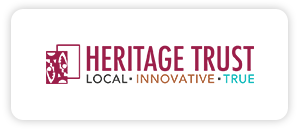Source: Jeff Wright, Hitachi Business Finance
After the Great Recession of 2008-2009, the economy experienced a decade of growth. M&A and private equity investment were at high levels, interest rates and unemployment were low and other economic indicators were favorable for investing and lending opportunities. Banks, with plenty of funds to employ, helped fuel this growth by providing business loans with extremely aggressive pricing and loan structures. Those lending conditions were great for all involved parties when companies are doing well and cash flow is positive, but when business slows and losses occur, many lenders find themselves holding an increasing number of non-performing, highly leveraged and under-collateralized loans.
This situation has accelerated during Covid-19 as sales and receivable levels declined, inventory is depleted, and equipment and real estate values are distressed. Banks are finding loans out-of-formula and loan covenants out of compliance, which triggers defaults because of poor operating performance and tightened cash flow.
In an effort to assist both the lender and borrower, federal regulators provided some relief for troubled loans by adjusting the bank’s loan loss reserves. However, banks will soon decide which borrowers to continue supporting and which must exit the bank. To prepare for the expected increase in non-performing loans and liquidations, banks are adding experienced staff to their special asset/workout groups to protect their interest.
If a business is experiencing financial difficulties, open and honest communication with the company’s lender is a must. Third party advisors, attorneys, CPAs, and consultants can be very helpful in providing information and advisory services. If the bank feels its position is impaired and a risk of loss is possible, banks often take a variety of positions on their willingness to continue financing.
#1: Issue Default
Some lending institutions take an aggressive approach by declaring a default, issuing a demand letter to have their loan paid off in full and stop additional advances. The lender lacks confidence in the borrower and assumes that their current collateral position will only deteriorate, resulting in a larger loss.
#2: Restructuring and Forbearance Agreements
Other lenders with defaulted or non-performing loans may restructure existing loan and security agreements. A forbearance agreement allows the bank to protect its interest, while agreeing to refrain from acting on collecting its loan. Conditions of a forbearance agreement may include:
- Additional collateral to support the loan
- Adding and/or securing guarantees
- Amending loan covenants
- Requiring additional financial and collateral reporting
- Requiring third-party consulting
- Waiving any claims against the Bank
- Or others deemed necessary to protect the bank’s interest
- A forbearance agreement gives the borrower runway to convince the bank to continue supporting their financing needs under new terms and conditions, find another source of financing to pay them off or sell the company. It’s not uncommon to see forbearance agreements extended if the borrower needs additional time and the loan exposure does not deteriorate further, and if there are no further defaults on the loan.
#3: Asset-based Lending
Lenders may also require their non-performing borrowers to acquire asset-based lending. This can be a lifeline to the struggling business, provided the collateral supports any new loan requests and there is sufficient availability. If there is a collateral shortfall, an asset-based lender cannot support the collateral deficiency and banks must consider taking a discount in the loan payoff or negotiate a deficiency agreement for the repayment.
If the bank is not interested in either, the institution may take steps to reduce its exposure by reducing advance rates, building a reserve, or increasing the amortization of its debt. The bank may also require the borrower to cover the shortfall personally with additional collateral or investment or obtain financing from a third party.
#4: Liquidation
Some businesses aren’t viable and are forced to close. Closure may be done on an orderly basis over time or an immediate shut down of operations. An orderly liquidation takes time and requires the cooperation of the guarantor/owner to maximum value of the assets. The bank also needs to be convinced that there is a benefit to make additional advances to maximize the repayment of their loan.
The guarantor/owner is often the best resource to help collect the receivables and complete the work-in-process and sell the remaining inventory. The guarantor is motivated to payoff the bank or risk a personal lawsuit to collect the deficiency balance. If the bank doesn’t have confidence in the management team, they may move to have a court-appointed receiver protect its interest and that of the other creditors.
All Avenues Exhausted
In today’s pandemic environment, many companies are staying afloat thanks to relaxed bank and regulator policies or by utilizing Paycheck Protection Program funds. But unfortunately, defaults are likely to occur as the economy remains stagnant. Banks may be left with no alternative but to take legal action. The longer a lender takes to start the liquidation process, the more likely their loss increases. Communicating with a lender when issues arise should always be the first step because no one wants to see a business default on a loan.
About Scale Finance
Scale Finance LLC (www.scalefinance.com) provides contract CFO services, Controller solutions, and support in raising capital, or executing M&A transactions, to entrepreneurial companies. The firm specializes in cost-effective financial reporting, budgeting & forecasting, implementing controls, complex modeling, business valuations, and other financial management, and provides strategic help for companies raising growth capital or considering M&A/recapitalization opportunities. Most of the firm’s clients are growing technology, healthcare, business services, consumer, and industrial companies at various stages of development from start-up to tens of millions in annual revenue. Scale Finance has multiple offices in the Carolinas including Charlotte, Raleigh/Durham, Greensboro, and Wilmington with a team of more than 45 professionals serving more than 130 companies throughout the region.







